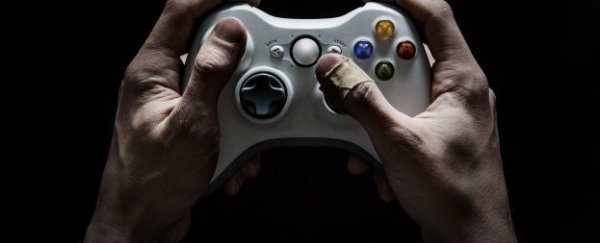Researchers have found that those who play action video games such as Call of Duty or Assassin's Creed are able to learn hand-eye coordination more quickly than non-gamers.
Sensorimotor skills are ones that engage our senses to produce a response or motor output, such as playing the piano, bike riding or typing - basically, they're tasks that require hand-eye coordination.
Learning a new sensorimotor skill often requires a repetitive pattern of vision and motor movement, commonly known as hand-eye coordination. When an individual has these skills, they are able to move from a beginner to expert level of performance in hand-eye coordination based tasks very quickly, and often subconsciously.
"We wanted to understand if chronic video game playing has an effect on sensorimotor control, that is, the coordinated function of vision and hand movement," said Davood Gozli, from the University of Toronoto in Canada, who led the study, in a press release.
The team of researchers from the University of Toronto, Canada, conducted an experiment on two groups of people, gamers and non-gamers, and then compared the results. Both groups were asked to complete a task on the computer that required the participant to coordinate hand movements with what they can see on the screen. The task required participants to manually track a dot that moved in a complicated, yet repetitive pattern.
Initially, both groups were handling the task equally well, but by the end of the experiment, the gamers were performing significantly better than the non-gamers.
"This suggests that while chronically playing action video games requires constant motor control, playing these games does not give gamers a reliable initial advantage in new and unfamiliar sensorimotor tasks," said Gozli.
Next, the team wanted to find out if these results were due to the gamers actually having better sensorimotor control to start with, or whether they were learning the motor skills more efficiently than the non-gamers. The participants were again asked to track the dot, but this time, the pattern changed each time. Results showed that in this experiment, neither group improved in their performance. These findings confirm that the gamers group were learning the repetitive pattern much better than the non-gamers.
"This is likely due to the gamers' superior ability in learning a novel sensorimotor pattern, that is, their gaming experience enabled them to learn better than the non-gamers," said Gozli.
The researchers say that the ability to efficiently learn sensorimotor skills are in high demand, particularly in certain careers where precision is needed, such as surgery. The hand-eye coordination that is enhanced by gaming can also help make everyday tasks such as driving and typing more efficient.
The study is published in the journal Human Movement Science.
Source: EurekAlert
